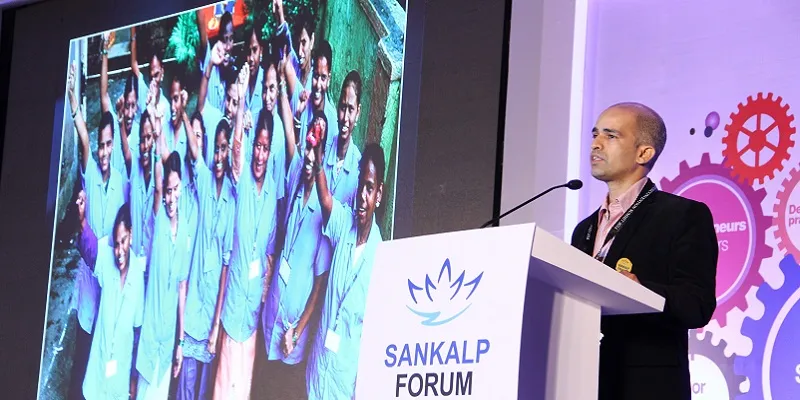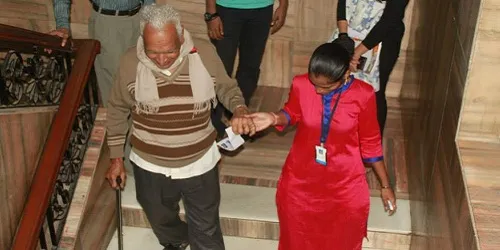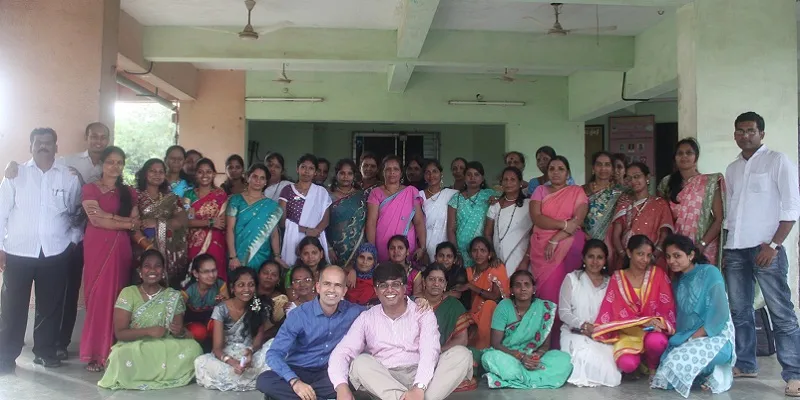Aaji Care provides non-medical care to senior citizens and dignified jobs to women caregivers
Prasad Bhide came up with the idea of Aaji Care – a non-medical care organisation specialising in geriatrics- after his mother was released from the Intensive Care Unit.
It was 2012, and the whole family was absorbed in a loop of anxiety and frustration caused by the multiplicity of post-recovery cures required. Prasad was then working in the US as a software engineer and there was no one back home who could dedicate full time to his mother while her treatment was going on.

“We tried to hire several people to take care of her, but there would always be some problems with the way they administered medicines or helped her in her exercises because they were not trained personnel,” Prasad explains. The whole situation was not only a challenge for the family; it also undermined the dignity of his mother who was forced to feel like a burden due to her medical conditions.
In the same year, Prasad started attending entrepreneurial events, including SmashUp, where he met his future mentor Puneet Srivastava. After finalising an action plan, they started training with 10 people and became operational after a few months.
Aaji Care now has more than 70 members among nurses and care takers, and a managing team of six. They are based in Mumbai and offer monthly general care services and packages for nursing and physiotherapy, as well as geriatric care and remote patient monitoring. “The reason why Aaji is a non-medical care organisation is that our services are ‘attendance services’. We do not prescribe any cure, but provide qualified staff that is able to understand and take care of the patient’s routine.”

Aaji Care has targeted a gap in services which doesn’t affect only patients but caregivers as well. Changing family habits, especially in urban areas, are exposing the increasing problem of unattended and economically resourceless seniors who do not know who to turn to for support. Many qualified nurses and assistants in India do not take up the task of geriatric assistance due to lack of an organised structure that supports this service.
Companies similar to Aaji, like Portea and India Home Health Care, have started to tackle the problem. “We are focused on improving the quality of non-medical care at home, making use of technology to bring down geriatric care costs,” explains Prasad.
Aaji for the moment trains and works exclusively with women. Prasad explains, “we have experienced that for several reasons, women are generally more committed to their job. We initially worked with men as well but found that it was harder for them to find a connection with the patient.” Prasad says that they have not definitively excluded working with men, but currently a much higher percentage of women is in need for a job which provides dignity and financial stability. He continues, “around 40-50 per cent of our caregivers are either divorced or widowed women.”

Aaji has reached breakeven point months ago, but is expected to be profitable in August this year, when Prasad will be ready to dedicate his full time to the venture.







